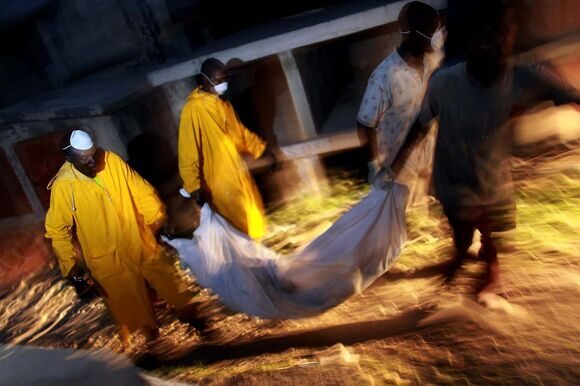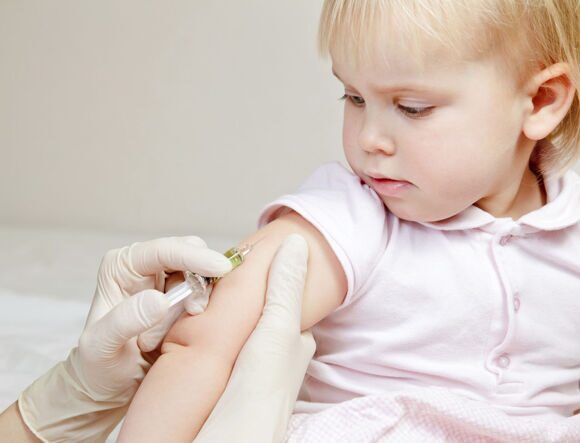ELI-Vaccino-Test
Prevaccinal child’s health state assessment
based on 6 antibodies
The idea of vaccination was born at least a few hundreds years ago most likely in ancient China and India. It was based on observation that smallpox and plague survivors developed strong resistance towards the illnesses, protecting them for long periods of time. The same facts were also noticed during plague epidemics in Medieval Europe. The survivors gained resistance to the disease; they did not catch it and did not get ill again. So, by experience, long before immune system was discovered, the mankind had groped for a sensible and useful idea of creating resistance to diseases in advance and in an artificial way.
Vaccination against rabies virus started by Pasteur more than 100 years ago now turned into a whole series of vaccination against many infectious diseases that is held from the third day of child's life. Now, everybody knows that immunized children getting in contact with an infected child do not fall ill. It would seem that such actively pursued disease prevention should bring good results. In practice, it does not appear to be quite right.
Is vaccination procedure really harmless?
It is established for sure that vaccination can induce different undesirable side reactions, up to severe damage to health, an invalidization and deadly outcomes. Serious complications (epilepsy, encephalopathy, demyelinating diseases, type 1 diabetes mellitus, various obstinate autoimmune processes, malignant limfoproliferative diseases, glomerulonephritis, etc.) are rare in occurrence, no more than 1 in 20000 cases. However, such cases are real and ignoring even a single case of postvaccinal death or disability cannot be tolerated.
During the last decades, dramatic increase of autism cases is being observed, and researchers denote vaccination, mainly by the preparations containing mercury, as one of the causes. As autism symptoms do not declare themselves immediately after vaccination but a few months later, parents do not often connect the onset of autism and preceding vaccination.
Some experts presumably connect a large amount of routine vaccination with negative tendencies in health level of the developed countries population, and in particular with wide spread of allergies and autoimmune diseases registered during the last 30 — 40 years.
Giving up vaccination: is it worth it?
More cases of postvaccinal complications generated a large number of vaccination opponents. During the last 5 years the reluctance of parents to vaccinate their children becomes more and more popular. Of course, the right to get their child immunized or not will always remain with parents. However, it is worth to remember that parents’ refusals to have their children vaccinated leads to nationwide appearance of diseases that are currently preventable by vaccines. Actually, just from January the 1st 2011 to May the 20th 2011, the Centers for Disease and Mortality Control and Prevention noted that 24 States had reported 118 cases of measles, 89% of the cases registered in unimmunized children.
Investigation into outbreaks of sickness and death rate from diseases currently preventable by vaccines links them directly to deliberate parents’ refusals of vaccination. Thus, in 2008, in San Diego, deliberate avoidance of vaccination led to measles outbreak with the number of affected children reached 839!

It is essential to remember that vaccination is still worldwide considered to be a very effective tool of infectious diseases prevention. In addition, for modern medicine immunization is an exceptionally economical way to maintain a good level of public health; that is why its scale tends to expand. Let’s recollect that when, after an abrupt decrease in measles cases in the United States in 1969-1970, the Federal Government had reduced funds for vaccination, it immediately caused increase in measles cases. While in 1971, restoring the relevant expenditure budget immediately led again to cases decrease.
Thus, existing opinion that supposedly Authorities reluctance to change the policy on vaccinal prevention is associated only with the interests of the vaccines manufactures is largely unjustified.
Two conclusions follow from the aforesaid: vaccination as a tool of infectious diseases prevention is very important; and no government will currently abandon the mass vaccination of the population, even in spite of frequent cases of postvaccinal complications and increased parents’ reluctance to have their children vaccinated.
But still, what is the cause of postvaccinal complications?
Data connecting different components of vaccines (mercury, aluminum, various adjuvants) with the emergence of severe diseases are ambiguous and, at times, contradictory, since some vaccines manufacturers claim that vaccine contains, for example, less mercury compounds (thiomersal <thimerosal – amer. ver.>) than there is mercury in the environment. But the most impressive is the so-called Danish Study that has revealed the lack of difference in autism cases in children who received vaccines containing thiomersal and in children who did not. In that case, what is the reason for increased disease incidence after vaccination?
Scientific and technological progress has changed the lifestyle of both adults and children, and it may be assumed that not always for better. Child’s body has to fight against growing influence of new factors, adapt itself to constantly varying new terms of existence. Today, sensitized child's body is responding to the intake of high-active proteins and other vaccine components in a totally different way than child’s body in the first half of the last century.
To clearly understand this, let us for illustration purposes discuss a family residing within three miles from a coal-fired power plant. If they also live not far from the sea coast, they eat seafood daily. Fertilizers, pesticides and herbicides used for cereals processing contain significant quantities of mercury. The coal-fired power plant emits large amounts of mercury into the air that is constantly inhaled by the family members, and seafood contains more mercury than is permitted by Environmental Protection Agency (EPA) Safety Standards. All this means that the children born in this family will have a very high content of mercury in their body. Just been born, they will get numerous vaccines containing more mercury, which will significantly increase the mercury load on their body. It is obvious that these children will respond to vaccination “especially”, ambiguously.
Leading role of the immune system in protecting us from infections, metabolic diseases, tumours, etc. is well known. Any stimulation of human immune system leads to its activities promotion, and then, under prolonged exposure to a stimulus, to decompensation. Possibilities of a highly sensitive and finely responding to stimulation immune system are not limitless. After all, it responds by failure or, as experts say, by deficit. And a vaccine introduced into child’s body with altered immune reactivity, will cause the most unpredictable complications.
We have completely forgotten that vaccination as a preventive tool was originally designed for introducing it into a healthy human body. Only in this case immune system will react to the vaccine components adequately and no side effects will occur. Many children, unfortunately, do not enjoy good health because of various reasons including the above-mentioned ones. There are contraindications to such children vaccination, practitioners related to immunization are aware of that; relevant instructions are enclosed into any vaccine package. What needs to be done is to individually examine every single child before vaccination, weighing all pros and cons, as we deal with a living body having individual peculiarities. The fact is not considered, though! Even in the most developed countries GPs do not examine children before vaccination at all, nurses are responsible for routine vaccination while they are unable to assess child’s health state properly and prevent possible vaccine-related complications from developing.

What is the solution?
So, vaccination has to be individually tailored; it is good in the hands of a careful and smart practitioner. But sometimes it is difficult even for a smart practitioner to decide if vaccination is appropriate for a particular child. The point is that, as soon as we exclude congenital fermentopathies which can cause severe postvaccinal complications, all other contraindications to vaccination can only be excluded through an objective report about child’s immune system state. In other words, even a good practitioner can make a mistake assessing child's immune system readiness for vaccination. A special laboratory test is required. Only this way enables assessing immune system state of an immunized objectively. Now, even in the best clinics of the world practitioners do not possess such an instrument. The only laboratory test authorized for practical application in this purpose is ELI-Vaccino-Test!
In conclusion, we would like to urge all parents not to experiment on their children. Have your child’s health state assessed properly before the next vaccination. This will prevent you from writing your own story at a bitter Facebook page “My-childs-vaccine-reaction”.

